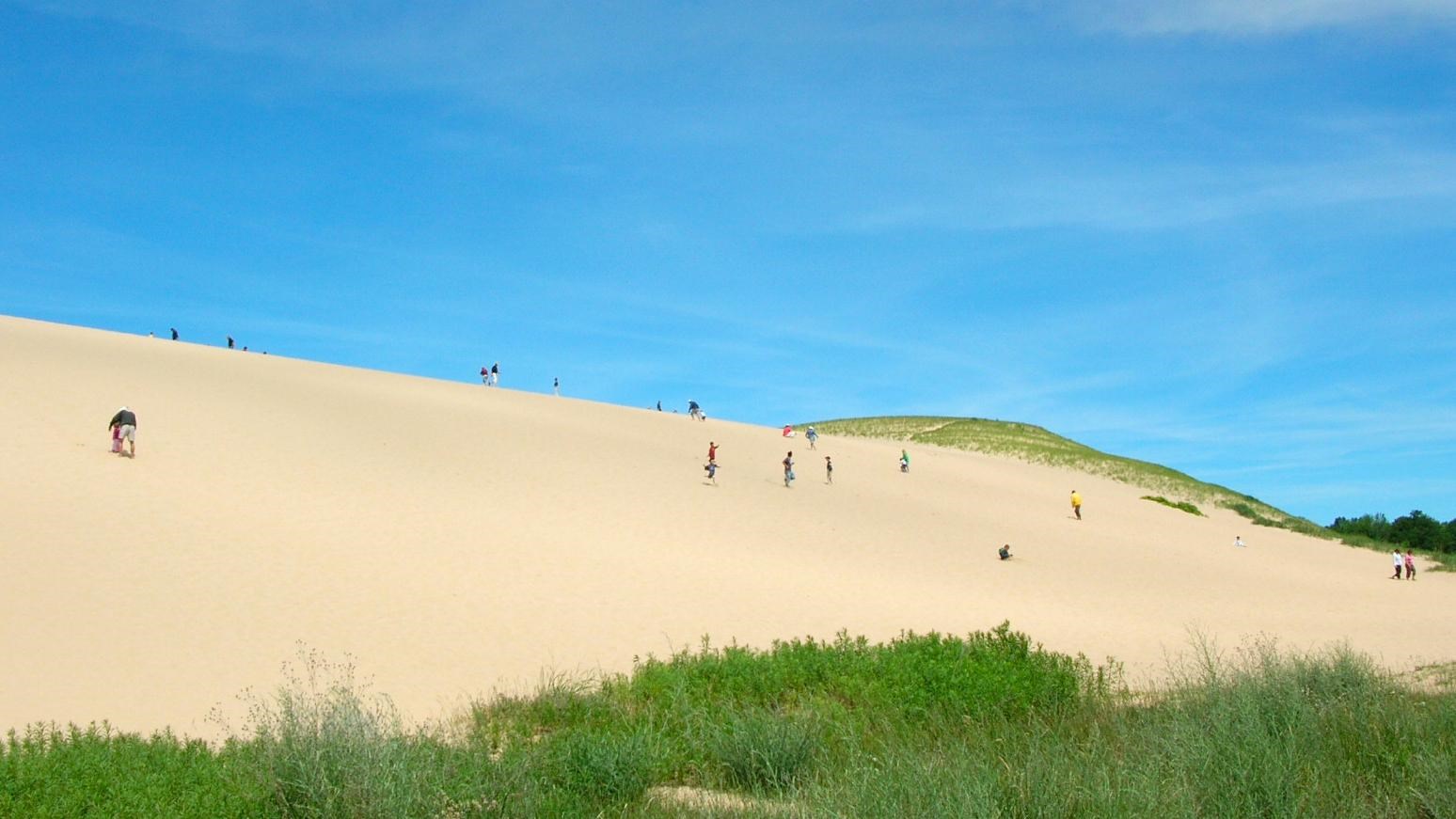Last updated: February 18, 2025
Place
Dune Climb

NPS credit
Bicycle - Rack, Entrance Passes for Sale, Historical/Interpretive Information/Exhibits, Parking - Auto, Parking - Bus/RV, Picnic Table
Pets are NOT allowed at the Dune Climb. There is a pet relief area on the north side of the parking lot.
Summer
Dune Climb Trail Checklist:
- Water - 2 liters per person
- Sunscreen and Sun Protection
- Salty Snacks
- footwear
- A plan and a buddy
Lake Michigan is not just over that next dune, or the next. From the top of the second hill, it is still 1-½ miles up and down across five big dunes to the lake. This is the most strenuous hike in the Lakeshore and will take most folks three hours.
From the top of the first dune, you will have a good view of Little Glen Lake. From the top of the second hill, you will get an even better view, but you will not see Lake Michigan on the other side.
If you prefer watching from the bottom of the dune, you'll find a picnic area offers at the base of the Dune Climb, as well as modern restrooms and a bookstore in summer.
Winter
In winter, when snow is present, sledding is permitted on the Dune Climb between the marked posts.
A port-o-john is available in the parking lot.
An active dune
It's the most famous attraction at Sleeping Bear Dunes National Lakeshore and a Midwest rite of summer, loads of fun for the young and young at heart: a 284-foot-high wall of glistening white sand that tourists climb for fun--the Dune Climb. This open dune forms the eastern edge of the Sleeping Bear Plateau, a 4 square-mile field of perched dunes that extends to Lake Michigan to the west and Sleeping Bear Point to the north.
The Dune Climb is different than almost all other dunes along the Lake Michigan shore. Most dunes are created when the wind takes sand from Lake Michigan beaches and piles it up. But the sand at the Dune Climb has never been in Lake Michigan or on a Lake Michigan beach, and the wind has actually piled it DOWN. The sand at the Dune Climb came from dunes higher up on the Sleeping Bear Plateau.
The Dune Climb is an active dune that moves. An exhibit at the base of the dune at the north end of the Dune Climb once featured a measuring stick that, would help you calculate how much the Dune Climb moves toward the parking area each year. It has been buried in recent years, as the dune moves approximately 2-4 feet every year. This is not just a little sand blowing across the ground but the full wall of sand moving ahead.
